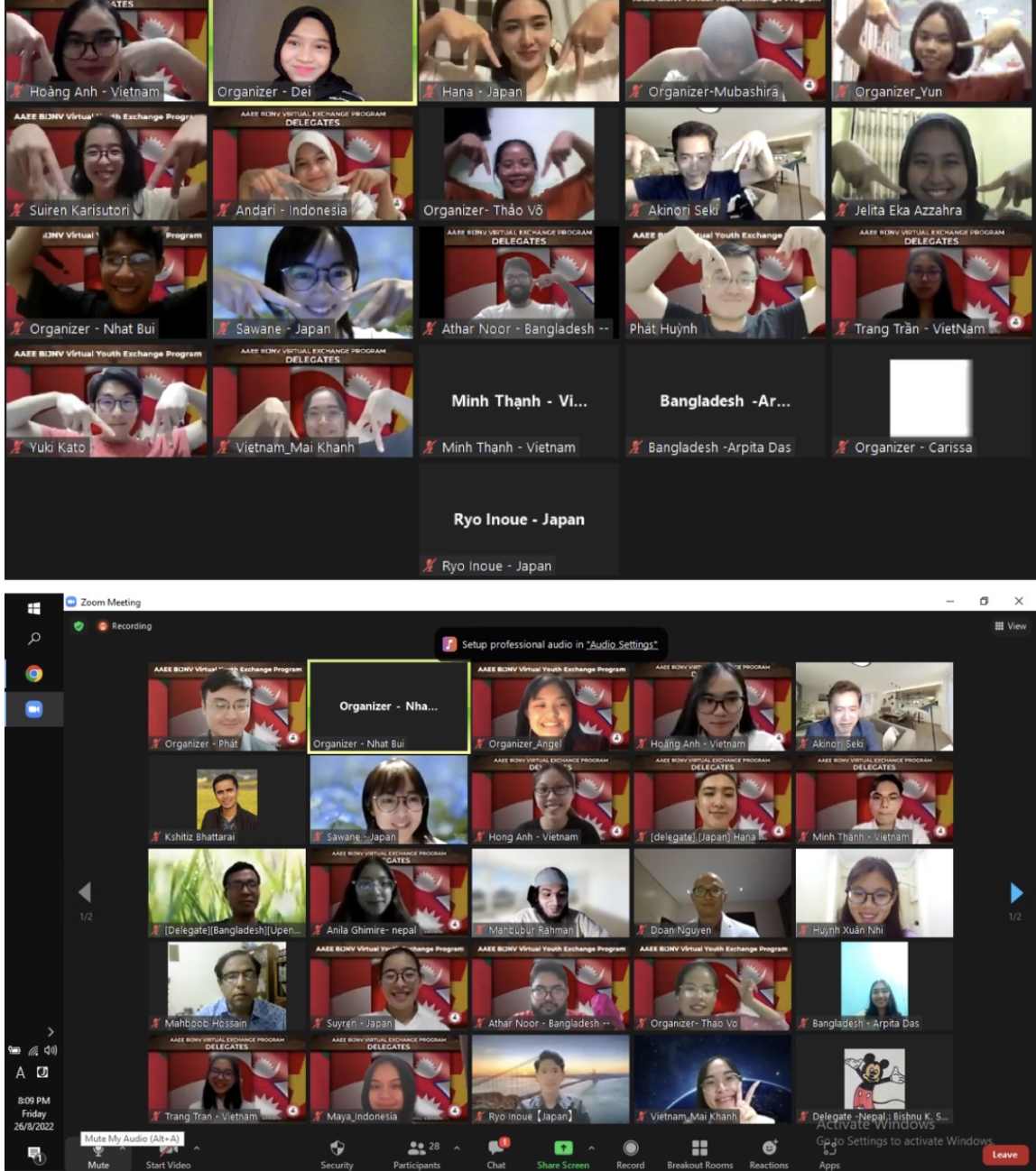

Sep, 2022
From August 26th to August 31st, 2022, the BIJNV, an AAEE program between five countries took place for the second time, after our first BIJNV success in March. Twenty-five students from Bangladesh, Indonesia, Japan, Nepal, and Vietnam participated in the program, where they engaged in online interactions and delved earnestly into the concepts of "multicultural society" and "collaboration," the main themes of this summer program.
Prior to the program's commencement, a "Pre-program" was conducted, which involved initial introductions and icebreaker activities, facilitating deeper connections among participants in preparation for smooth collaboration during the program.
On the first day of the program, we welcomed our special guests from each country, including VIPs from BRAC University from Bangladesh and Ho Chi Minh University of Economics from Vietnam, to hold an opening ceremony. Following that, participants explored the cultural aspects of each country through games aligned with the program's themes.
The second day revolved around considering each other's cultures through Hofstede's Model, which encompasses "power distance," "individualism/collectivism," "masculinity/femininity," "uncertainty avoidance," "long-term orientation/short-term orientation," and "indulgence." Meaningful discussions were held based on these six indicators.
Day three started with a cultural quiz activity for our participants to ease into the academic activities, followed by discussions on their respective countries' education and cultural issues. Conversations expanded to encompass the educational disparities occurring in each country, allowing participants to deepen their understanding of various education-related topics.
The fourth day was followed after August 28th which marked this year's "Earth Overshoot Day," which led to a difficult discussion dealing with the challenge of how to address and solve the escalating environmental issues. Through discussions, participants earnestly considered solutions, showcasing their enthusiasm and offering hope for future generations.
The fifth day involved reflecting on the pre-program and the four days of learning. Preparations were the primary activity as the next day was the program's final day, where the participants would give presentations. Upon glimpsing the presentation materials created by participants within a relatively short timeframe, expectations soared for the final project.
Finally, the sixth day arrived, the day of the anticipated final event. Participants presented outstanding projects based on themes such as "Ideas for passing down traditional craftsmanship to young people" and "Ideas for imparting cultural knowledge to the younger generation." They had thoroughly developed project models with budgets and presented them impressively.
The BIJNV 5-Country Program, made possible online, achieved success through the efforts of exceptional participating students, organizers, and supporters of AAEE. The interactions among students, who deepened their understanding of the importance of collaborative efforts for multicultural coexistence, will undoubtedly continue into the future.
